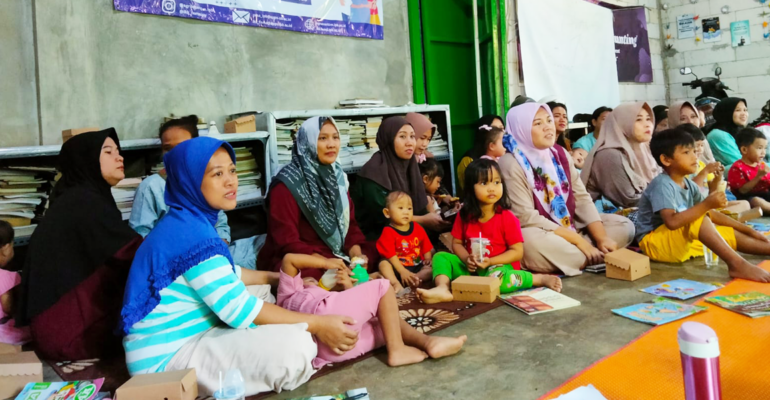DPMA and the Department of IKK IPB University Invite Mothers in Benteng Village to Maintain the Quality of Child Development

The Directorate of Agromaritime Community Development (DPMA) together with the Department of Family and Consumer Sciences (IKK) invited mothers in Benteng Village to understand and improve the quality of child development through the Quality Family School program in Benteng Village, Ciampea District, Bogor, 27/10. At this meeting, the theme discussed was “Characteristics of Toddlers and the Environment needed by Toddlers for Optimal Growth and Development” with Dr Melly Latifah who is an expert lecturer in child development at IPB University.
Child development at the age of under two years (baduta) is highlighted as a critical period because brain growth in children is very rapid. This period carries the highest risk of vulnerability to disruptions, but on the other hand, also contains great potential for positive impacts that may significantly affect the child’s development.
There are three ways that young children learn: through play, through building their knowledge, and naturally. In an effort to support the development of infants and young children, there are seven types of learning stimuli that are important to provide, namely gross movement, fine movement, passive communication, active communication, development of thinking intelligence, fostering independence, and developing social skills.
Dr Melly Latifah, also said that some unintentional actions or behaviors of parents can hinder the development and expression of children’s natural instincts.
“A mother must patiently explain to her child with piecemeal knowledge. Because the way children learn is very unique, creative, and highly curious. If the mother cannot patiently explain it to the child, the child will become too lazy to ask,” said Dr Melly Latifah, IPB University lecturer from the Department of Family and Consumer Sciences.
She explains that the role of parents in developing attachment between parents and children is very important because it has a big impact on the emotional and psychological development of children. Parent-child attachment refers to a strong and healthy emotional relationship between parents and children, so that children feel safe, loved, and given adequate attention. (IAAS/RZL)



